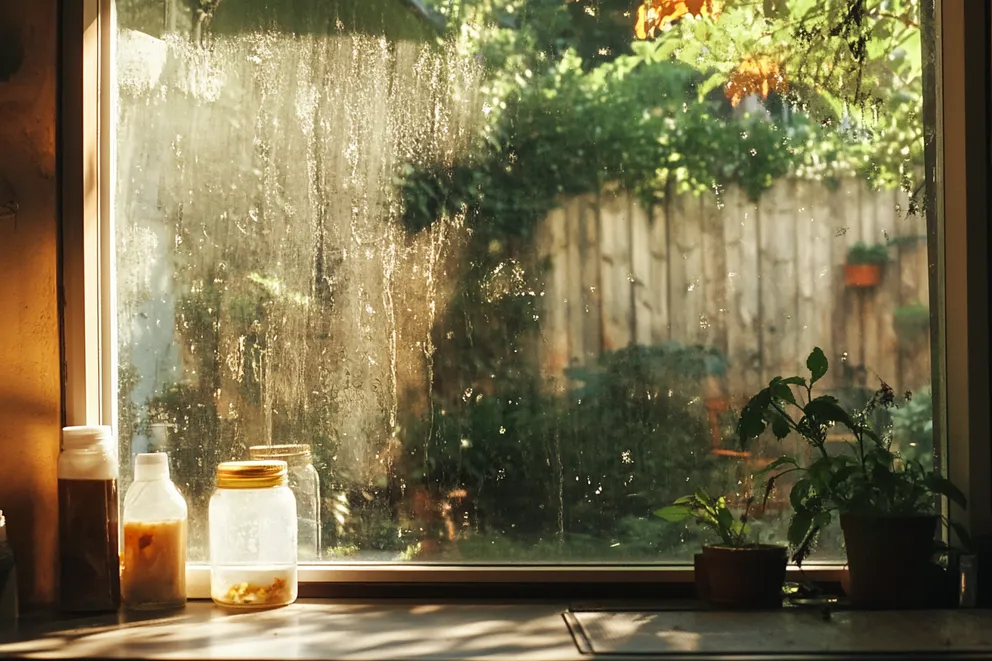Life often teaches us lessons in the most unexpected ways. Whether through a simple glance out the window, a broken vase, or even two apples in a child’s hands, everyday situations can reveal powerful wisdom. These short yet thought-provoking stories will inspire you to see life differently—offering insights into kindness, patience, and how we judge others too quickly.
The Stained Laundry: A Lesson in Perspective

A woman watched from her window as her new neighbor hung laundry outside to dry. But something wasn’t right. The clothes looked dirty, full of stains.
“She doesn’t even know how to wash properly!” she scoffed, calling her husband over to look.
Days passed, and the laundry always seemed the same—stained, unclean. She shared her observations with friends, spreading gossip about her neighbor’s inability to do something as simple as washing clothes.
Then one day, to her surprise, she looked out and saw spotless, bright-white laundry hanging outside.
“Finally, someone must have taught her how to clean properly,” she muttered.
Her husband chuckled and said, “Actually, this morning, I cleaned our windows.”
The stains had never been on her neighbor’s laundry. They were on her own window.
This story teaches us a crucial lesson: before we judge others, we should check our own perspective first. Sometimes, what we see as flaws in others are simply reflections of our own.
The Secret to a Happy Marriage: Taking the Blame

In a small town, two neighboring couples lived very different lives. One household was always filled with arguments—blaming, shouting, and endless fights. The other couple, however, lived in harmony, rarely seen quarreling.
Curious, the wife from the unhappy household asked her husband, “Go and find out their secret! Why don’t they argue like we do?”
Her husband decided to observe them, hiding outside their open window one evening.
Inside, the wife was dusting an expensive vase when the phone rang. She placed the vase near the edge of the table and walked away. Moments later, her husband entered the room, accidentally knocking the vase to the floor, where it shattered.
The man braced himself, expecting to hear yelling. Instead, his wife rushed over and said, “Oh dear, I’m so sorry! I should have placed it more securely.”
To his surprise, her husband responded, “No, it’s my fault. I should have been more careful while walking.”
Instead of arguing, they both took responsibility, turning what could have been a fight into an act of understanding.
When the eavesdropping neighbor returned home, his wife asked, “So, what did you learn?”
“In their home,” he said, “each person takes the blame, which keeps the peace. In our home, we fight to prove we are right.”
The key to a happy marriage isn’t about winning arguments—it’s about mutual understanding and willingness to take responsibility.
Two Apples: A Lesson in Not Jumping to Conclusions
A little girl excitedly ran to her mother, holding two apples.
“They’re beautiful, aren’t they?” she beamed.
Her mother smiled and asked, “Would you share one with me?”
The girl looked at the apples, hesitated, and took a big bite of one. Then, she took a bite of the second apple too.
Her mother felt a wave of disappointment. She had expected her daughter to give her one but instead, the girl had taken both.
Before she could say anything, the little girl extended one apple to her mother and said, “Mommy, take this one. It’s sweeter!”
The mother felt a pang of guilt for assuming the worst.
This story reminds us that we shouldn’t be too quick to judge others. We often misinterpret actions when, in reality, there’s a kindness hidden beneath them.
The Power of Words: A Lesson on Speaking Wisely

Two best friends had a falling out. Hurt and angry, one of them began speaking badly about the other, spreading negative stories to anyone who would listen.
Later, he regretted his words and wanted to make amends. He approached his friend and apologized.
“I’ll forgive you,” the friend said, “but only if you complete one task for me.”
“Anything!” the man replied eagerly.
“Take this pillow, go to the highest hill, and release all its feathers into the wind.”
Confused, the man did as he was told. He climbed to the top of the hill, tore the pillow open, and watched as the feathers scattered far and wide.
He returned and said, “I’ve done it. Am I forgiven?”
“Almost,” the friend replied. “Now, go and collect every single feather and put them back in the pillow.”
“That’s impossible!” the man protested.
“Exactly,” his friend said. “Just like those feathers, once words leave your mouth, you can never take them back.”
This story teaches a valuable lesson—words have power. Once spoken, they can never truly be undone. Choose them wisely.
The Red Rose: A Lesson in Looking Beyond Appearances

A sailor had been corresponding with a woman named Rose for years. They had never met, but through their letters, they formed a deep connection.
When his service ended, they finally arranged to meet at the train station. Rose wrote that she would wear a red rose on her lapel so he could recognize her.
As the sailor arrived, he saw an older woman, around fifty, standing under the station clock, wearing a red rose.
For a moment, he hesitated. She wasn’t what he had imagined. Should he turn away?
Summoning his courage, he walked toward her and introduced himself.
With a warm smile, the woman said, “Young man, I am not Rose. She’s waiting behind me.”
The sailor turned and saw a young, beautiful woman smiling at him. She had asked the older woman to wear the rose as a test—to see if he cared more about inner beauty than appearances.
This story reminds us that true beauty comes from within, and we should never judge based on looks alone.
Dandelions: A Lesson in Acceptance

A man took great pride in his flawless, green lawn. One day, he noticed dandelions growing among the grass.
Annoyed, he pulled them out. But they came back. He tried everything—cutting, digging, even using chemicals. Yet the dandelions persisted.
Finally, frustrated, he wrote to a well-known horticulturist, listing every method he had tried. He ended his letter with one desperate question:
“I’ve done everything. What else can I do?”
The expert replied, “There’s only one thing left: Learn to love them.”
Sometimes, the things we fight the hardest are the things we need to accept.
This story is a powerful reminder that in life, not everything can be controlled. Instead of resisting what we don’t like, sometimes the best approach is to embrace it.
Conclusion

Life’s greatest lessons often come from the simplest moments. Whether it’s realizing our own flaws before judging others, embracing responsibility in relationships, or learning to be patient before making assumptions, each of these short stories offers wisdom we can carry into our own lives.
Next time you find yourself quick to judge, arguing to prove a point, or struggling to change something beyond your control, remember these lessons. They just might change your perspective—and your life.


